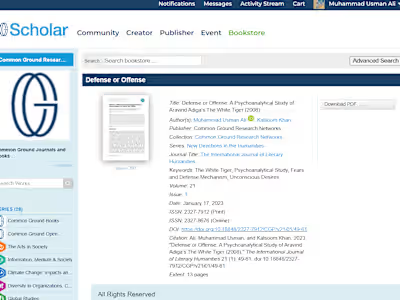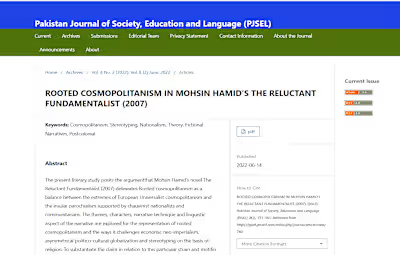ROOTED COSMOPOLITANISM IN MOHSIN HAMID’S THE RELUCTANT FUNDAMEN…
Keywords:
Cosmopolitanism, Stereotyping, Nationalism, Theory, Fictional Narratives, Postcolonial
Abstract
The present literary study posits the argumentthat Mohsin Hamid’s novel The Reluctant Fundamentalist (2007) delineates Rooted cosmopolitanism as a balance between the extremes of European Universalist cosmopolitanism and the insular parochialism supported by chauvinist nationalists and communitarians. The themes, characters, narrative technique and linguistic aspect of the narrative are explored for the representation of rooted cosmopolitanism and the ways it challenges economic neo-imperialism, asymmetrical politico-cultural globalization and stereotyping on the basis of religion. To substantiate the claim in relation to this particular strain and motifin the novel, the theoretical concepts of nationalism, cultural affiliation and glocalization, from within the theory of Rooted Cosmopolitanism are applied to substantiate the claim in the analysis of the fictional work. A close reading of the novel is done to show that Mohsin Hamid’s Rooted Cosmopolitanism negates and challenges the narratives of both globalism and localism in the novel selected for the study.
Like this project
Posted Mar 16, 2025
open access, scholarly publishing, open source software, non-profit organizations, scholarly journals, free Access
Likes
1
Views
2




